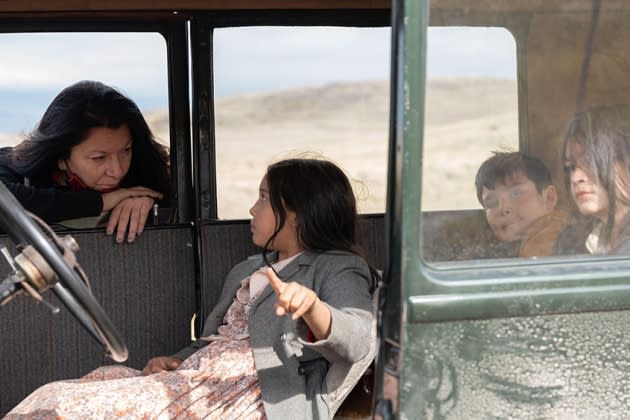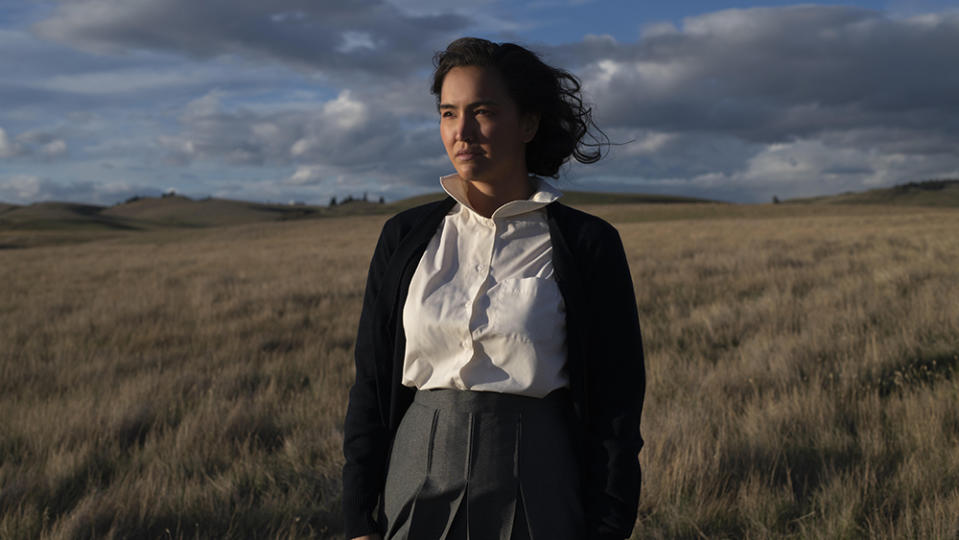In CBC Original ‘Bones of Crows,’ Marie Clements is Ready to Tell the Truth about Canada’s Residential Schools
- Oops!Something went wrong.Please try again later.
- Oops!Something went wrong.Please try again later.

Billed as the first Indigenous and female-led produced, written, and directed drama about the residential school experience in North America, Marie Clements’ “Bones of Crows” is not afraid of making people uncomfortable.
“We should be squeamish about it,” the helmer tells Variety at Mipcom, addressing the show’s graphic scenes. A concurrent feature film is also in the works.
More from Variety
'The Department of Time's' Onza Unveils Development and Co-Production Pact with Intrepidus
'There Isn't One Standard Model': Mipcom Panelists Talk International Drama Co-Productions
“I never felt it was too harsh or too violent, but violence towards Indigenous people is a fact. I wanted the audience to understand it, but also understand the release of that, the release of the past.”
Her decades-spanning story, told over the course of five episodes, focuses on Cree matriarch Aline as she survives a childhood in Canada’s residential school system and then continues to fight against systemic starvation, racism and sexual abuse.
A CBC Original, “Bones of Crows” is produced by Ayasew Ooskana Pictures Inc, with Marie Clements Media, Screen Siren Pictures and Grana Productions also on board.
Grace Dove, also spotted in “The Revenant,” Phillip Forest Lewitski, Rémy Girard, Karine Vanasse, Alyssa Wapanatâhk, Angus Macfadyen and Michelle Thrush star.
“To truly understand any trauma, we have to understand its long-term ramifications,” points out Clements.
“How it really changes a human being, how we can be triggered by these experiences our entire life. Often, this extends to our children and their children as well.”
Residential schools for Indigenous children existed in Canada until the late 1990s. Last year, the remains of 215 children, students at Canada’s largest institution of that kind, were found near the city of Kamloops in British Columbia.
“What happened in these schools, it wasn’t a one-off incident. This experience set up a whole domino of things that were not just personal. They were political,” she says.
Admitting that the shocking discovery came as no surprise to her community.
“It has been discussed in our families, documented through numerous accounts. But when you actually find a body, a body of a baby, that makes it real. It made it real even for those who don’t want to believe Indigenous people.”
Clements says that her miniseries, described as a “multigenerational experience,” is based on “the commonality of that experience.”
“It might be viewed as confrontational, but it’s the truth. And we should be confronted by the truth.”
Also behind “Red Snow” or “The Road Forward,” Clements has been telling “difficult” stories most of her life, she says.

“We were shooting at a residential school too, in the girls’ dorm, around the same time when these 215 babies were found. We were reenacting scenes of what could have happened to these children, children who were buried by the river.”
“People want history to stay history, but it’s not finished with us yet.”
Clements says that every single person in her cast and crew has a family member that has gone to a residential school or lost someone because of it. “It unified us,” she notes.
“I don’t think this story could have been told five or even three years ago. That opportunity just wasn’t here before,” says a Métis/Dene filmmaker, admitting things have “opened up” in Canada.
“Hopefully, we are at the point where all people can tell the truth about themselves. There is integrity to women telling their own stories, to Indigenous people telling their own stories. It just makes us better.”
She mentions “Roots” as an inspiration.
“With one of my executive producers, Sam Grana, we talked about this [1977] show. It broke open the world of how we understood the Black experience in America.”
“People do understand ‘other’ stories. The more we realize how connected we are, the less we will want to harm each other.”
Trish Dolman, Christine Haebler, Sam Grana, Aaron Gilbert, Steven Thibault and Noah Segal serve as executive producers.
Best of Variety
The Best Pop Culture Halloween Costumes for 2022: From 'House of the Dragon' to 'Euphoria'
Constance Wu Gets Candid in Revealing New Memoir 'Making a Scene'
Sign up for Variety’s Newsletter. For the latest news, follow us on Facebook, Twitter, and Instagram.

